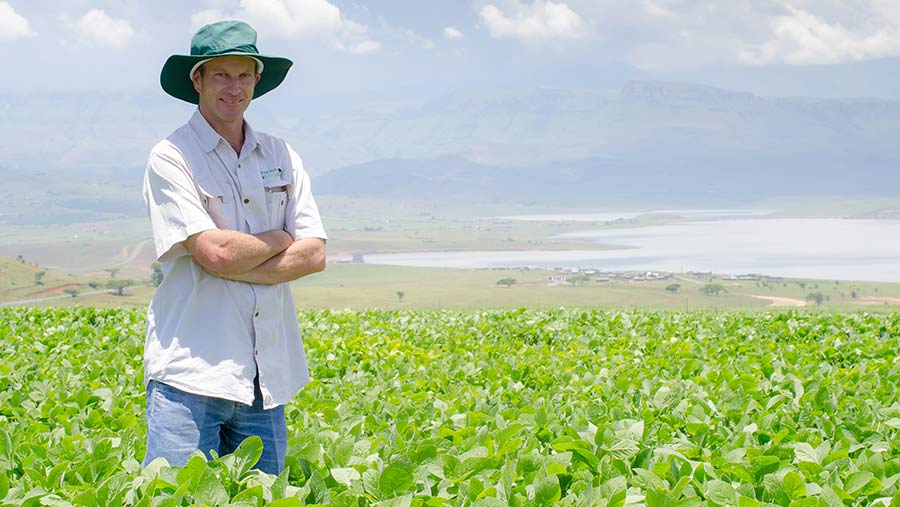Farmer Focus: The pros and cons of winter cover crops
 © Karen Edwards
© Karen Edwards We have now experienced five dry seasons in a row, with this one being the worst by far.
I live in the summer rainfall area of South Africa, but this summer it has been very hot with not much rainfall.
Some of my maize is only shoulder height and in full flower! Two weeks ago we received 45mm in a half-hour storm.
See also: Cover crops can lift sugar beet yields, research shows
I was worried as to how much of that rain would have gone into the soil. Thanks to the surface residue from many years of no-till and cover cropping, there was virtually no run-off from my fields.
Long-term thinking
It is in times like these that one makes interesting observations. First, my fields with better organic matter content seem to handle the drought better.
Second, the worst-looking maize is on fields from the best cover crop. A simple explanation for this is that the winter cover crop dried up the soil profile.
One could argue that we should not grow winter cover crops but I don’t see it like that at all.
One of my goals with cover crops is to improve the soil’s water-holding capacity.
I want every cubic meter of soil to be able to hold more water. A winter cover crop puts a live root into the soil and a green leaf in the sun at a time of the year when the land is normally fallow.
Through the miracle of photosynthesis, a green leaf uses sunlight energy to fix atmospheric carbon dioxide.
Some of this carbohydrate is exuded from the roots to feed the soil microbiology.
These roots and microbes eventually die and become soil organic matter – this is nature’s sponge, which improves the soil’s water-holding capacity.
One cannot make long-term management decisions based on the worst year “ever”, which is why I recently flew my next winter cover-crop mix over that short maize.
I see organic matter as a long-term project. Soils with higher organic matter grow better crops, which in turn leave more carbon behind. It is cumulative.
Einstein once referred to compound interest as the eighth wonder of the world: “He who understands it, earns it. He who doesn’t, pays it.” Maybe no-till and cover cropping are the ninth wonder of the world.
Bruce Shepherd farms in KwaZulu-Natal, South Africa. Read his biography.

